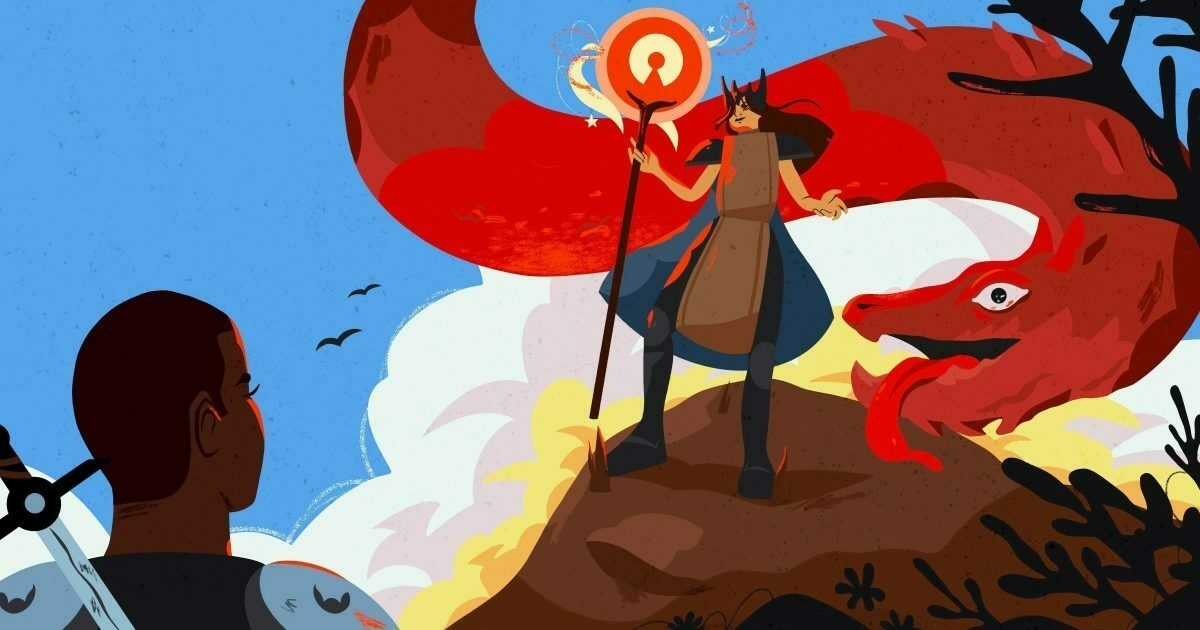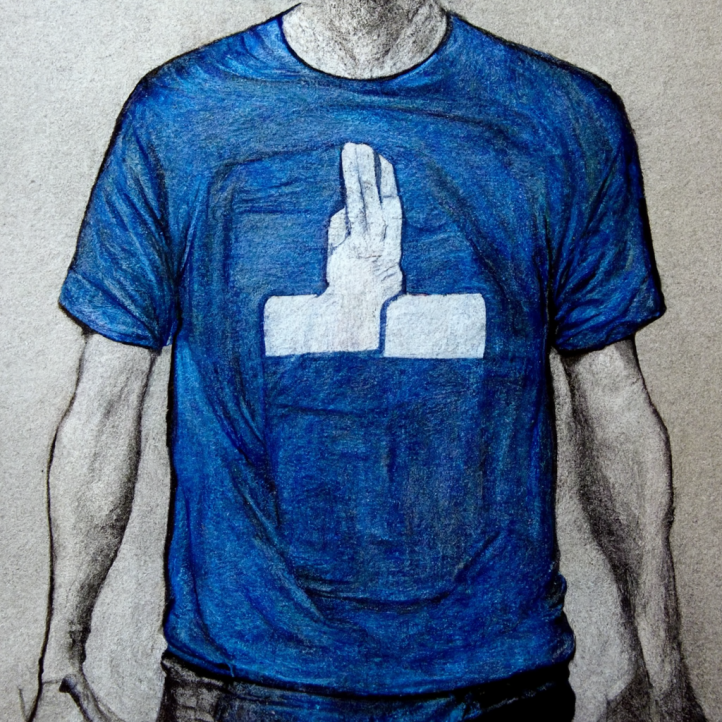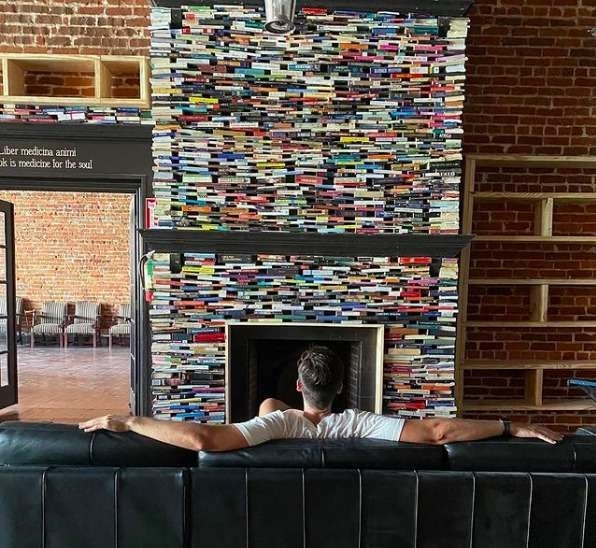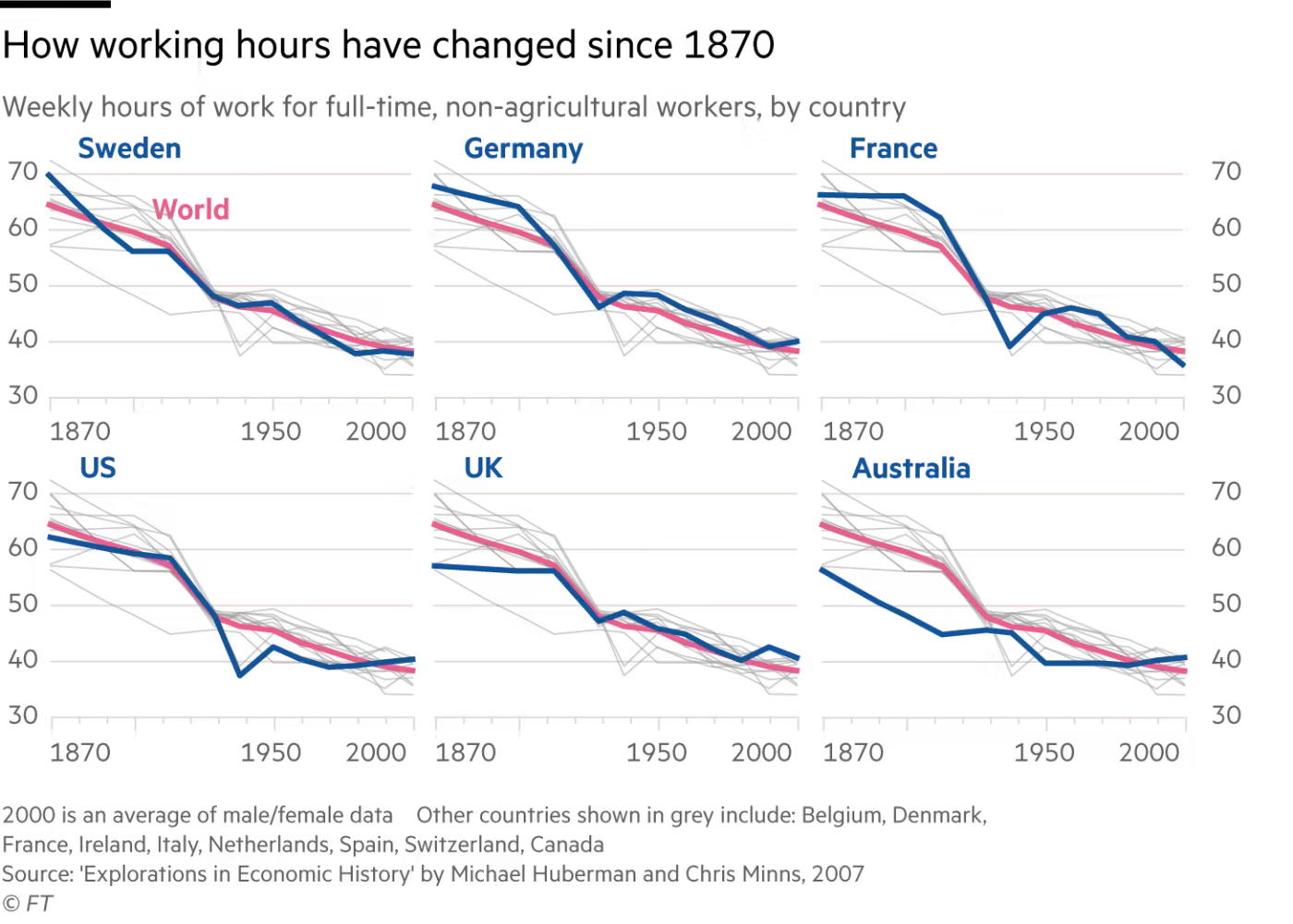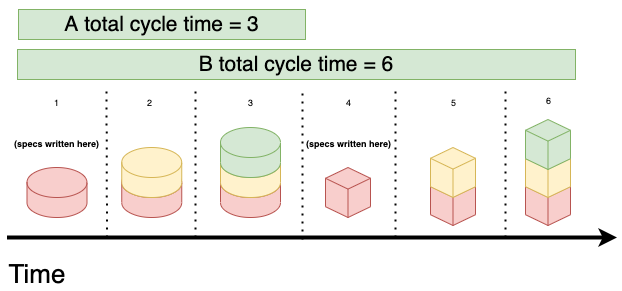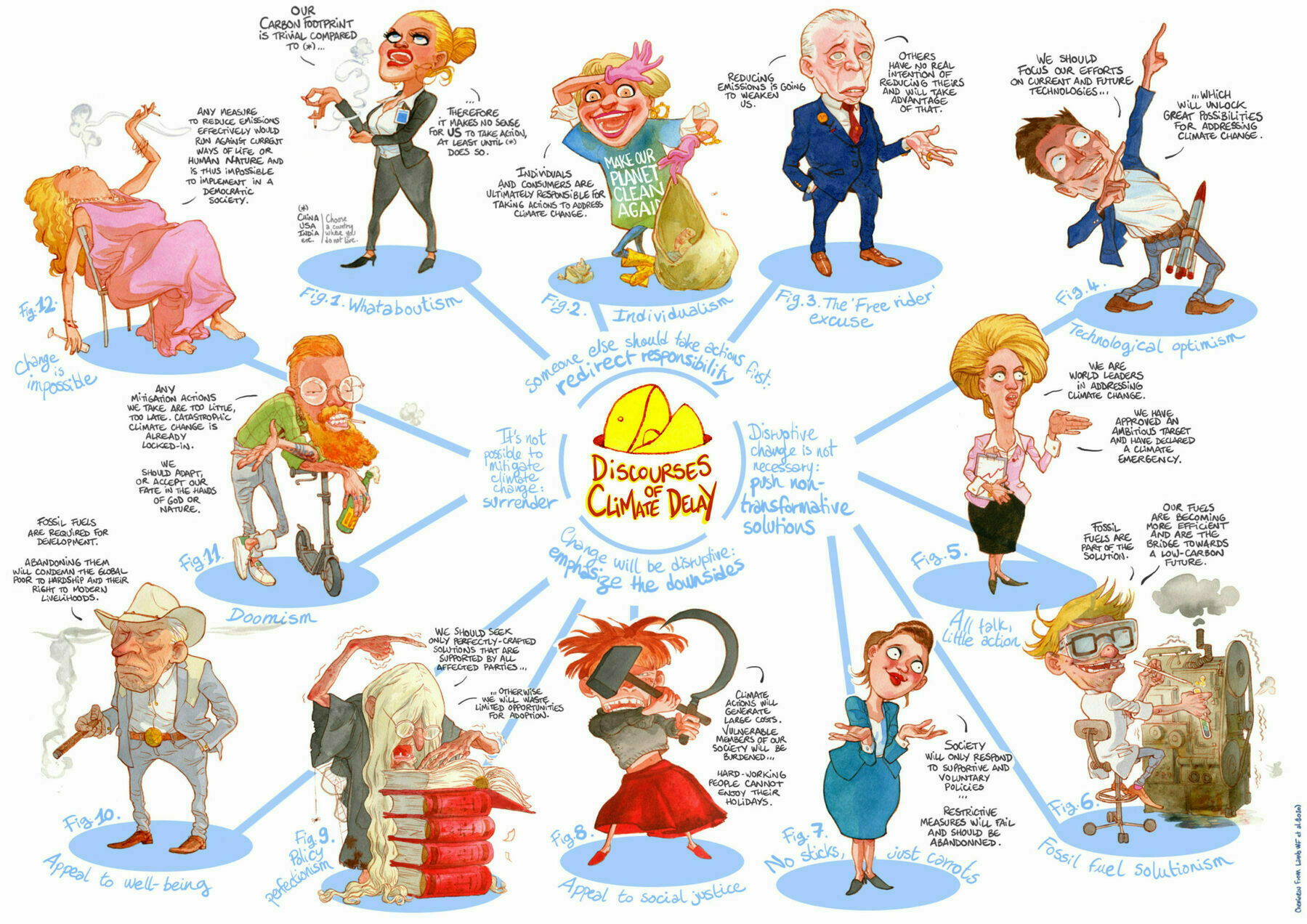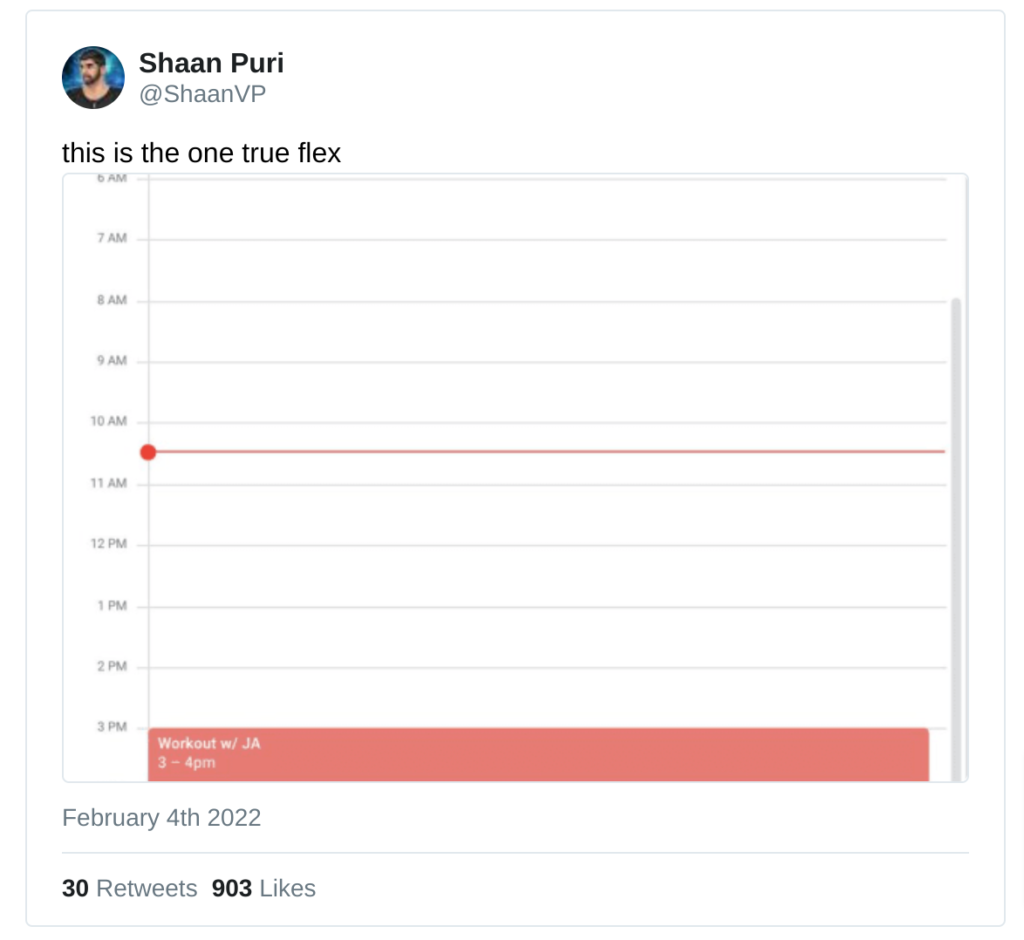Ethical (open) source (licenses)
As I’ve said recently elsewhere, I don’t think technical projects do a good enough job to proactively defensively license their outputs. This, I’d say, is why we can’t have nice things.
While I agree with the sentiment around ‘ethical source’ models, the philosopher in me would argue that it’s an absolute minefield.
Ethical impulses aren’t new to software. The Free Software Foundation advocates for a “struggle against for-profit corporate control” and against restrictions on users’ freedom to inspect and modify code in the products they buy. It was started after its founder, Richard Stallman, found he was unable to repair his broken printer because he was unable to edit its proprietary code. However, the open-source movement distanced itself from this political stance, instead making the case that open source was good for corporations on “pragmatic, business-case grounds.” But both free and open-source software allow anyone to use code for any purpose.Source: Can you stop your open-source project from being used for evil? | Stack Overflow Blog[…]
So what about developers who don’t want their work to be used to help separate kids from their families or create nonconsensual pornography?
The Ethical Source Movement seeks to use software licenses and other tools to give developers “the freedom and agency to ensure that our work is being used for social good and in service of human rights.” This view emphasizes the rights of developers to have a say in what the fruits of their labor are used for over the rights of any user to use the software for anything. There are a myriad of different licenses: some prohibit software from being used by companies that overwork developers in violation of labor laws, while others prohibit uses that violate human rights or help extract fossil fuels. Is this the thicket Stallman envisions?
[…]
Will people who intend to commit evil acts with software care what a license says or abide by its terms? Well, it depends. While the anonymous users of the deepfake software I studied might still have used it to create nonconsensual porn, even if the license terms prohibited this, Ehmke suggests that corporate misuse is perhaps a more pressing concern: she points to campaigns to prevent software from being used by Palantir and a 2019 report by Amnesty International that raised concerns that the business models of big name technology companies may threaten human rights. Anonymous users on the internet might not care about licenses, but as Ehmke says and my own experience with lawyers in tech companies confirms, “These companies and their lawyers care very much about what a license says.” So while ethical source licenses might not stop all harmful uses, they might stop some.
Being busy isn't a badge of honour
If you think I’m sharing this image because my name is Doug and I find the accompanying image amusing then you’d be 100% correct.
I used to think being swamped was a good sign. I’m doing stuff! I’m making progress! I’m important! I have an excuse to make others wait! Then I realized being swamped just means I’m stuck in the default state, like a ball that settled to a stop in the deepest part of an empty pool, the spot where rainwater has collected into a puddle.Source: Being Swamped is Normal and Not Impressive | Greg KoganBeing swamped means probably not getting enough rest, making things more complicated than they need to be, wasting time on petty decisions, and not thinking deeply about important decisions.
Now, I’m impressed by people who are not swamped. They prioritize ruthlessly to separate what’s most important from everything else, think deeply about those most-important things, execute them well to make a big impact, do that consistently, and get others around them to do the same. Damn, that’s impressive!
Being busy isn't a badge of honour
If you think I’m sharing this image because my name is Doug and I find the accompanying image amusing then you’d be 100% correct.
I used to think being swamped was a good sign. I’m doing stuff! I’m making progress! I’m important! I have an excuse to make others wait! Then I realized being swamped just means I’m stuck in the default state, like a ball that settled to a stop in the deepest part of an empty pool, the spot where rainwater has collected into a puddle.Source: Being Swamped is Normal and Not Impressive | Greg KoganBeing swamped means probably not getting enough rest, making things more complicated than they need to be, wasting time on petty decisions, and not thinking deeply about important decisions.
Now, I’m impressed by people who are not swamped. They prioritize ruthlessly to separate what’s most important from everything else, think deeply about those most-important things, execute them well to make a big impact, do that consistently, and get others around them to do the same. Damn, that’s impressive!
Meta may really be exiting Europe as soon as this year
Well, we can but hope. The backlash from Instagram-obsessed people would be too much for politicians to bear, however…
Meta has—as it must—warned its investors that it’s in deep trouble in Europe. It’s neither a threat nor a bluff, but rather a statement of fact: without a successor to the U.S.-EU Privacy Shield deal, which the EU’s top court nuked a couple of years back, Facebook and Instagram will be forced to pack up and abandon the European market.Source: Even Meta’s critics don’t grasp how likely it is that Facebook and Instagram will soon have to exit Europe | FortuneIndeed, this uncomfortable reality was made clearer last month, when Ireland’s privacy regulator submitted a draft decision to its EU peers that would ban Facebook and Insta from transferring Europeans’ personal data to the U.S., because there is no longer any legal basis for these transfers to continue.
[…]
I find it astonishing that even Facebook’s critics, let alone the markets, haven’t glommed onto the reality of the situation. I suspect the culprit is a deep-seated notion that Mark Zuckerberg’s all-powerful company can somehow fix this by modifying its legendarily bad privacy behavior—as though it had some brilliant solution hidden up its sleeve, just waiting until the last possible second before pulling it out.
Image: created using Midjourney
The importance of being yourself
Any article that quotes the Stoic philosopher Epictetus and talks about the importance of being yourself is a winner.
When we are ourselves, we have value. When we are like everyone else…we are fungible. We are replaceable–by definition. We have little value…by definition.Source: This Is The Best Career Decision You Can Possibly Make | Ryan Holiday[…]
BE YOU. Be the only one of you in the whole world. Be the red. That’s where the fun is (without having to fake it). That’s where the money is (you can name your price). That’s where the value is (you can’t be replaced).
[…]
Two thousand years before Peter Thiel said that, “competition is for losers,” Epictetus quipped that, “You can always win if you only enter competitions where winning is up to you.”
[…]
Too many people pointlessly enter contests where the outcome is dependent on forces outside their control. They think it’s safer to be like everyone else…when in fact, what they’re really doing is hiding themselves in the chorus, protecting themselves from judgment. They’re less likely to be singled out and laughed at, sure, but they’re guaranteeing that they’ll never really be noticed or appreciated. Theirs becomes the Indian restaurant that will never be great, but it will never be closed. That is the best you can expect when you’re not playing to win…you’re playing not to lose.
Generating a logo using an AI drawing model
A couple of weeks ago, I was experimenting with Midjourney and speculating about machine creativity. This post is interesting if you haven’t tried using an AI drawing model as it talks about what Dan Hon calls ‘prompt engineering’ (a term he doesn’t like). Dan also linked to this fantastic example from Andy Baio.
Everybody has heard about the latest cool thing™, which is DALL·E 2 (henceforth called Dall-e). A few months ago, when the first previews started, it was basically everywhere. Now, a few weeks ago, the floodgates have been opened and lots of people on the waitlist got access - that group included me.Source: How I Used DALL·E 2 to Generate The Logo for OctoSQL | Jacob MartinI’ve spent a day playing around with it, learned some basics (like the fact that adding “artstation” to the end of your phrase automatically makes the output much better…), and generated a bunch of (even a few nice-looking) images. In other words, I was already a bit warmed up.
To add some more background, OctoSQL - an open source project I’m developing - is a CLI query tool that let’s you query multiple databases and file formats in a single SQL query. I knew for a while already that its logo should be updated, and with Dall-e arriving, I could combine the fun with the practical.
Algorithmic Anxiety
I listened to a great episode of CBC’s Spark podcast with the excellent Nora Young on what ownership will look like in 2050. One of the contributors talked about what it might look like to be “on the wrong side of the API”. In other words, the person responding to the request, rather than giving it.
We’re already heading towards a dystopia when people are having their behaviour influenced by black box algorithms that we don’t understand. This article talks about shopping on Instagram and listing property on Airbnb, but the point (and the anxiety) is universal.
Only in the middle of the past decade, though, did recommender systems become a pervasive part of life online. Facebook, Twitter, and Instagram all shifted away from chronological feeds—showing messages in the order in which they were posted—toward more algorithmically sequenced ones, displaying what the platforms determined would be most engaging to the user. Spotify and Netflix introduced personalized interfaces that sought to cater to each user’s tastes. (Top Picks for Kyle!) Such changes made platforms feel less predictable and less transparent. What you saw was never quite the same as what anyone else was seeing. You couldn’t count on a feed to work the same way from one month to the next. Just last week, Facebook implemented a new default Home tab on its app that prioritizes recommended content in the vein of TikTok, its main competitor.Source: The Age of Algorithmic Anxiety | The New YorkerAlmost every other major Internet platform makes use of some form of algorithmic recommendation. Google Maps calculates driving routes using unspecified variables, including predicted traffic patterns and fuel efficiency, rerouting us mid-journey in ways that may be more convenient or may lead us astray. The food-delivery app Seamless front-loads menu items that it predicts you might like based on your recent ordering habits, the time of day, and what is “popular near you.” E-mail and text-message systems supply predictions for what you’re about to type. (“Got it!”) It can feel as though every app is trying to guess what you want before your brain has time to come up with its own answer, like an obnoxious party guest who finishes your sentences as you speak them. We are constantly negotiating with the pesky figure of the algorithm, unsure how we would have behaved if we’d been left to our own devices. No wonder we are made anxious. In a recent essay for Pitchfork, Jeremy D. Larson described a nagging feeling that Spotify’s algorithmic recommendations and automated playlists were draining the joy from listening to music by short-circuiting the process of organic discovery: “Even though it has all the music I’ve ever wanted, none of it feels necessarily rewarding, emotional, or personal.”
[…]
“Algorithmic anxiety,” however, is the most apt phrase I’ve found for describing the unsettling experience of navigating today’s online platforms. Shagun Jhaver, a scholar of social computing, helped define the phrase while conducting research and interviews in collaboration with Airbnb in 2018. Of fifteen hosts he spoke to, most worried about where their listings were appearing in users’ search results. They felt “uncertainty about how Airbnb algorithms work and a perceived lack of control,” Jhaver reported in a paper co-written with two Airbnb employees. One host told Jhaver, “Lots of listings that are worse than mine are in higher positions.” On top of trying to boost their rankings by repainting walls, replacing furniture, or taking more flattering photos, the hosts also developed what Jhaver called “folk theories” about how the algorithm worked. They would log on to Airbnb repeatedly throughout the day or constantly update their unit’s availability, suspecting that doing so would help get them noticed by the algorithm. Some inaccurately marked their listings as “child safe,” in the belief that it would give them a bump. (According to Jhaver, Airbnb couldn’t confirm that it had any effect.) Jhaver came to see the Airbnb hosts as workers being overseen by a computer overlord instead of human managers. In order to make a living, they had to guess what their capricious boss wanted, and the anxious guesswork may have made the system less efficient over all.
Naming heatwaves
I’m hoping other countries follow suit and bring some attention to heatwaves as human-caused extreme weather events.
The world's first named heat wave hit Seville, Spain, this week, pushing temperatures past 110 degrees Fahrenheit and earning the most severe tier in the city's new heat wave ranking system.Source: ‘Zoe’ becomes the world’s first named heat wave | ClimatewireHeat wave “Zoe” has brought scorching temperatures to the southern part of the country for the last few days, particularly the region of Andalusia where Seville is located. Even in the evenings, the Spanish meteorological service recorded temperatures that hovered in the mid-80s in some areas — an extra stress on the human body, which relies on cooler nights to recover from high daytime heat.
Doomed to live in a Sisyphean purgatory between insatiable desires and limited means
I’m reading The Dawn of Everything: A New History of Humanity by David Graeber and David Wengrow. It’s an eye-opening book in many ways, and upends notions of how we see the way that people used to live.
This article suggests that 15-hour working weeks are the norm in egalitarian cultures. While working hours are steadily declining, we’re still a long way off — primarily because our desires and means are out of kilter.
New genomic and archeological data now suggest that Homo sapiens first emerged in Africa about 300,000 years ago. But it is a challenge to infer how they lived from this data alone. To reanimate the fragmented bones and broken stones that are the only evidence of how our ancestors lived, beginning in the 1960s anthropologists began to work with remnant populations of ancient foraging peoples: the closest living analogues to how our ancestors lived during the first 290,000 years of Homo sapiens’ history.Source: The 300,000-year case for the 15-hour week | Financial TimesThe most famous of these studies dealt with the Ju/’hoansi, a society descended from a continuous line of hunter-gatherers who have been living largely isolated in southern Africa since the dawn of our species. And it turned established ideas of social evolution on their head by showing that our hunter-gatherer ancestors almost certainly did not endure “nasty, brutish and short” lives. The Ju/’hoansi were revealed to be well fed, content and longer-lived than people in many agricultural societies, and by rarely having to work more than 15 hours per week had plenty of time and energy to devote to leisure.
Subsequent research produced a picture of how differently Ju/’hoansi and other small-scale forager societies organised themselves economically. It revealed, for instance, the extent to which their economy sustained societies that were at once highly individualistic and fiercely egalitarian and in which the principal redistributive mechanism was “demand sharing” — a system that gave everyone the absolute right to effectively tax anyone else of any surpluses they had. It also showed how in these societies individual attempts to either accumulate or monopolise resources or power were met with derision and ridicule.
Most importantly, though, it raised startling questions about how we organise our own economies, not least because it showed that, contrary to the assumptions about human nature that underwrite our economic institutions, foragers were neither perennially preoccupied with scarcity nor engaged in a perpetual competition for resources.
For while the problem of scarcity assumes that we are doomed to live in a Sisyphean purgatory, always working to bridge the gap between our insatiable desires and our limited means, foragers worked so little because they had few wants, which they could almost always easily satisfy. Rather than being preoccupied with scarcity, they had faith in the providence of their desert environment and in their ability to exploit this.
Finish what you start
This article uses the analogy of a burger chef to show how software teams can be more productive by focusing on a small number of features at a time.
I think this is more widely applicable. The factory production line was designed to make already-designed things with the fewest mistakes. It does not make people happy, nor does it foster creativity.
Figuring out problems is hard. It’s kind of what I do for a living. Having lots of different things on the go at the same time does not improve things, it makes each one worse.
Now that we understand the burger and the software variations of the problem, we can make a recommendation to both cooks and software engineers alike:Source: How finishing what you start makes teams more productive and predictable | Lucas F. CostaReducing transaction costs enables small batches. Small batches, in turn, reduce average cycle times, diminish risk, and enhance reliability.
You should only start without having finished when transaction costs are high, and it wouldn’t make economic sense to spend time decreasing them, either because you have agreed to a particular delivery date or because you don’t have the capital to invest.
That said, I’d be careful to avoid falling into a situation where “you’re too busy draining the flood to be able to fix the leak”. The earlier you decrease transaction costs, the earlier you’ll be reaping the benefits from having done it.
You don't need a personal trainer
On Saturday, my Garmin smartwatch told me that my ‘fitness age’ is now 33.5. This is eight years younger than my chronological age, and apparently as low as I can get it using the Garmin app.
This is not a surprise to me. Covid absolutely battered my lungs from January to March. So I decided to do something about it, and built up to running every single day.
Willpower is necessary to form habits, but then willpower is necessary in life in general. So yes, get a personal trainer as this guy has done. But someone shouting at you to try harder is an extrinsic motivator. What you need to do is to develop intrinsic motivation to go harder and be better.
We all know the benefits of regular exercise, from living longer to better mental clarity. However, it is notoriously difficult advice to digest, especially for someone in their early 20s who hasn't even experienced a real hangover. The gist of the advice being that money and career success will come if you work at it. But prioritise your mental and physical health and your day-to-day work will improve. It's much easier to stay in shape than it is to stagnate and rebuild your fitness. Your 40 year-old self will thank you.Source: The best investment | ᕕ( ᐛ )ᕗ Herman’s blogFor a long time I’ve know this to be true. During periods of consistent exercise I’ve had more energy and mental clarity throughout the day. My personal outlook on life is generally better as well. Not to mention that outdoor activities with friends are more accessible and less daunting. Despite this, it has still always been a struggle to stay consistent.
A wave of “habit fetishism” has swept through the West in recent years with books like Atomic Habits regularly topping the best seller lists. It’s a tantalising concept as it sells an easy way to “live the life you’ve always wanted”.
It may work for some, but very few people who try these techniques actually “live the life of their dreams”. What keeps fit people going to the gym on a regular basis isn’t wearing their running shoes to bed at night. It’s discipline and accountability.
This brings me to the best investment I’ve ever made: A personal trainer.
Foregrounding externalities
I found this article via the excellent Sentiers, which I support as a member. It discusses the importance of making visible externalities — a term which is reasonably common in literature relating to economics and risk, but not general discourse.
An externality is “an indirect cost or benefit to an uninvolved third party that arises as an effect of another party’s (or parties') activity”. In this case we’re talking about the cost of extracting materials from the ground and shipping them around the world.
The shipping container led to the highly sophisticated supply chains we see today, which has been extremely efficient in making, exploiting and creating a form of global labour and material arbitrage.Source: Designing without depletion: Joseph Grima’s non-extractive architecture | ForegroundIt is vital to the relocating and offshoring of production to places where the costs are far lower. But even more importantly it makes the consequences, or ‘externalities’, of production completely invisible to Western consumers.
What if we suddenly decided that we’re going to stop pretending those things don’t happen? What if we embrace the consequences of what it means to manufacture products and to build, and to price its full cost? If the sticker price included the full cost of everything we build, then suddenly making things locally and sourcing materials locally would become much more attractive.
Slack emboldens the meek
This is a useful article which focuses on the lack of internal Codes of Conduct and community managers within organisations. Performativity in the workplace is a thing, and workplace chat tools can escalate those types of behaviours into new levels of toxicity.
People act differently online, and tools like Slack, while not expressly built to hook users, still make work feel like social media. Emoji reactions and replies provide the same validation as likes and retweets. “I don’t post online anymore because I don’t like being so public, but if I have something fun going on in my life, I will put that into Slack,” said Rebecca Levin, a Program Manager at research startup Maze. And as Ellen Cushing noted in the Atlantic, like Twitter and Reddit, discussions in Slack feel “categorically different, somehow less real.”Online, everyone is engaged in a digitally-mediated performance. As Erving Goffman wrote, “We are all just actors trying to control and manage our public image.” And the pressure to maintain that image can quickly turn reasonable people into pundits. When news breaks, “there’s this feeling that if I don’t post about it on Twitter, I’m complicit,” said Charlie Warzel, co-author of Out of Office: The Big Problem and Bigger Promise of Working from Home. “You end up weighing in as if you’re some sort of public figure, despite the fact that you’re not.”
Slack emboldens the meek; compared to an all-hands, the ease of posting makes speaking up a lot easier. Anne Helen Petersen, Warzel’s partner and co-author, has found herself in that position, and sees it as a mixed blessing. The freedom is powerful, she said, “but it also opens a portal. It’s just more discourse, right?”
[...]Leaders often treat Slack as just another tool. But as Godwin’s Law wryly observed, any extended online discussion is a Hitler comparison waiting to happen. “You’re creating a public room where people are empowered to talk back,” said Marketos. “If something starts to blow up in Slack, you need to have an amazing response that’s defensible if it’s screenshotted and shared with a reporter.” While few HR teams are experienced in rapid-response crisis communications, for community managers, “it comes naturally, and it’s very much an unsung part of their skillset.”
Source: The Extremely Online Workplace | by Benjamin Jackson
Discourses of Climate Delay
I came across this and am sharing it to remind myself of all of the ways that people try to avoid the very pressing problem of the climate emergency.
On GitHub Achievements
GitHub is owned by Microsoft, and Microsoft was one of the earlier adopters of the Open Badges standard. So when I saw this announcement about GitHub Achievements, I naturally assumed they’d be Open Badges.
However, I don’t think that’s the case. I think it’s another staging post in the vendor lock-in long game.
Achievements celebrate and showcase your journey on GitHub. You can take a trip down memory lane as you reminisce on some of your earlier work (yes, certain achievements will surface events dating back to the beginning!). You can also share them on social media to show off the new badges you’ve earned. We’ll only ship a few to start, but as we roll out more over time, achievements will begin to paint a clearer picture of you and the work you’re passionate about.Source: Introducing Achievements: recognizing the many stages of a developer’s coding journey | The GitHub Blog
Teaching about dead white guys in an age of social media
I’m pleased that I completed my formal education and moved out of teaching before social media transformed the world. In this article, Marie Snyder talks about teaching an introductory Philosophy course (the subject of my first degree) and the pushback she’s had from students.
There’s a lot I could write about this which would be uninteresting, so just go and read her article. All I’ll say is that, personally, I still listen to musicians (like Morrissey) whose political views I find abhorrent. Part of diversity is diversifying your own thinking.
It’s important that we scrutinize behaviours. It’s useful to clarify that discrimination or harm of any kind — from former cultural appropriation to sexual crimes — is not to be tolerated. We should definitely overtly chastise damaging behaviours of people as a means to shift society to evolve down the best timeline. But we are all greater than our worst actions; for instance, Heidegger’s overt anti-semitism doesn’t obliterate his theories of being. His student and lover, Hannah Arendt, is another name potentially requested stricken from syllabi for a collection of racist comments despite her quarrel with her mentor about his bigoted position.Source: On Tossing the Canon in a Cannon | 3 Quarks DailyWe have to look at ideas, not people, when sifting the wheat from the chaff. Some ideas stand the test of time even if their author is found otherwise wanting. It doesn’t suggest that they’re an honourable person when we find a piece of work worthy of our attention, and it’s not like we’re contributing to their wealth if they’re long dead. We need to bring back a nuanced approach to these works instead of the current dichotomous path of slotting people in a good or bad box.
Social-first searching
I don’t see this as such a weird thing, especially when it comes to food. For example, my wife follows lots of local places on Instagram and will research new places using that app when we travel. I tend to use Google Maps for that kind of thing. Neither of us would start with a regular web search, because context is important.
Even back prior to 2010, I can remember Drew Buddie doing a TeachMeet presentation on ‘Twitter is my Google’. The point is that humans are social creatures. We want recommendations and to see what we could be potentially missing out on…
Nearly 40% of Gen Z prefers searching on TikTok and Instagram over Google Search and Maps, according to Google's internal data first reported by TechCrunch.Source: Nearly Half of Gen Z Prefers TikTok and Instagram Over Google Search | Business InsiderGoogle confirmed this statistic to Insider, saying, “we face robust competition from an array of sources, including general and specialized search engines, as well as dedicated apps."
Chromebooks banned in Danish schools
Slowly, and then all at once is how a ‘splinternet’ happens. I’m seeing more and more cases of the EU standing up to so-called Big Tech companies like Google over data processing agreements.
In this case, it’s Denmark’s data protection agency, but I should imagine other European countries might follow suit. There’ll be an uproar, though, because data security and sovereignty aside, Google absolutely nailed it with that operating system.
Denmark is effectively banning Google’s services in schools, after officials in the municipality of Helsingør were last year ordered to carry out a risk assessment around the processing of personal data by Google.Source: Denmark bans Chromebooks and Google Workspace in schools over data transfer risks | TechCrunchIn a verdict published last week, Denmark’s data protection agency, Datatilsynet, revealed that data processing involving students using Google’s cloud-based Workspace software suite — which includes Gmail, Google Docs, Calendar and Google Drive — “does not meet the requirements” of the European Union’s GDPR data privacy regulations.
Specifically, the authority found that the data processor agreement — or Google’s terms and conditions — seemingly allow for data to be transferred to other countries for the purpose of providing support, even though the data is ordinarily stored in one of Google’s EU data centers.
Productivity is the enemy of creativity
I like the metaphor used in this post of being light a lightbulb: fully one, or off. In fact, not only have I organised my working life to be like this (I can’t work at half pace, and it’s burned me out when I’ve been employed), but this is the advice I give to my kids when they play sports.
“Most people in life are dim lights, they're on but they are not bright. Because they are trying to conserve energy. You should make a choice, you are either on or off. There is either GO time or there is relaxing time. Try to be more binary. You have more energy when it’s Go time" - Andrew “Cobra” Tate.Source: Be Like a Light Bulb: The Importance of Resting Ethic | The Hard Fork by Marvin Liao[…]
Naval [Ravikant] famously said: “Productivity is the Enemy of Creativity”
Rest is absolutely critical for high performance. Without it, it’s like revving your engine until it breaks or blows up. We’re in a new world now where our brains power everything. As the Doomberg crew calls it: “The Gig Economy for Brains.”
Naval again says: “Some of the most creative and productive people I have ever met work in multi-week bursts and then have weeks where they just idle with little done. It’s the nature of the human animal.”
All-in and fully energized OR quiet and at rest. There is no in between. This is a key habit for effective work in the modern day. Don’t be a dim light.
Spring '83
John Johnston put me onto this via a comment on my personal blog. Spring ‘83 is a protocol developed by Robin Sloan, multi-talented developer, olive farm owner, and author of novels such as Mr. Penumbra’s 24-Hour Bookstore.
The internet these days is much less fun and weird than it used to be, which is sad. Here’s an example of the protocol in action at the site spring83.mozz.us and you can have a play about at The Oakland Follower Sentinel by creating your own keypair (see the blue sidebar!)
For me, the recent resurgence of the email newsletter feels not much like a renaissance, and more like a massing of exhausted refugees in the last reliable shelter. I’m glad we have it; but email cannot be the end of the story, either.Source: Specifying Spring ‘83 | Robin SloanI’m dissembling a bit. The truth is, I reject Twitter, RSS, and email also because … I am hyped up to invent things!
So it came to pass that I found myself dreaming about designs that might satisfy my requirements, while also supporting new interactions, new ways of relating, new aesthetics. At the same time, I read a ton about the early days of the internet. I devoured oral histories; I dug into old protocols.
The crucial spark was RFC 865, published by the great Jon Postel in May 1983. The modern TCP/IP internet had only just come online that January, can you believe it? RFC 865 describes a Quote of the Day Protocol:
A server listens for TCP connections on TCP port 17. Once a connection is established a short message is sent out the connection (and any data received is thrown away). The service closes the connection after sending the quote.That’s it. That’s the protocol.I read RFC 865, and I thought about May 1983. How the internet might have felt at that moment. Jon Postel maintained its simple DNS by hand. There was a time when, you wanted a computer to have a name on the internet, you emailed Jon.
There’s a way of thinking about, and with, the internet of that era that isn’t mere nostalgia, but rather a conjuring of the deep opportunities and excitements of this global machine. I’ll say it again. There are so many ways people might relate to one another online, so many ways exchange and conviviality might be organized.
Spring ‘83 isn’t over yet.
